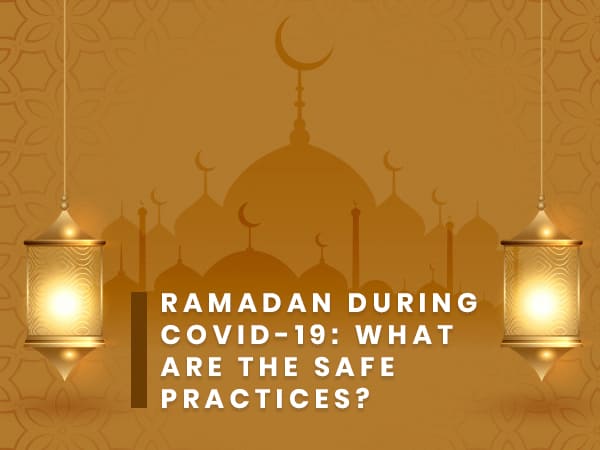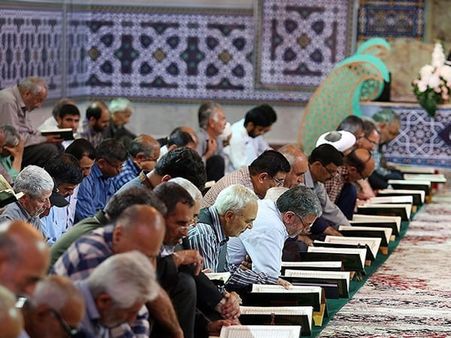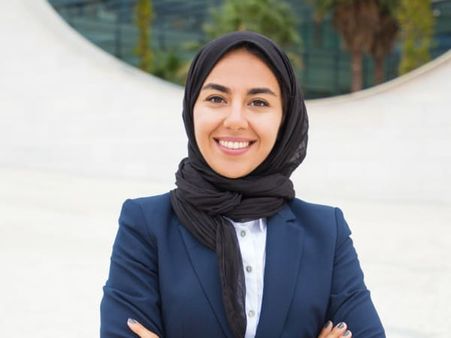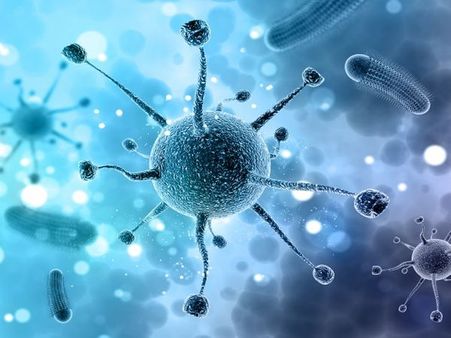Just In
- 2 hrs ago

- 3 hrs ago

- 5 hrs ago

- 6 hrs ago

Don't Miss
- Automobiles
 2024 Jeep Wrangler Facelift Launched In India - Prices Start At Rs 67.65 Lakhs
2024 Jeep Wrangler Facelift Launched In India - Prices Start At Rs 67.65 Lakhs - News
 Bengaluru Voters Offered Free Breakfast, Rides, And Beer To Boost Turnout
Bengaluru Voters Offered Free Breakfast, Rides, And Beer To Boost Turnout - Movies
 Supriya Menon’s Heartfelt Anniversary Post For Husband Prithviraj Sukumaran: 13 Years With You! Wow!
Supriya Menon’s Heartfelt Anniversary Post For Husband Prithviraj Sukumaran: 13 Years With You! Wow! - Technology
 WhatsApp Introduces Passkey Support for Enhanced Security on iOS – Here’s How To Set It Up
WhatsApp Introduces Passkey Support for Enhanced Security on iOS – Here’s How To Set It Up - Finance
 Mark Zuckerberg's Meta Reports Record Q1 Profit Surge, Projects AI Investments This Year; Stock Slumps
Mark Zuckerberg's Meta Reports Record Q1 Profit Surge, Projects AI Investments This Year; Stock Slumps - Sports
 PAK vs NZ Dream11 4th T20I: Squads, Fantasy Tips & Best Picks for Pakistan vs New Zealand fourth match
PAK vs NZ Dream11 4th T20I: Squads, Fantasy Tips & Best Picks for Pakistan vs New Zealand fourth match - Education
 UPSC CAPF 2024 registration begins; Apply online for 506 Assistant Commandant posts, Know more
UPSC CAPF 2024 registration begins; Apply online for 506 Assistant Commandant posts, Know more - Travel
 Escape to Kalimpong, Gangtok, and Darjeeling with IRCTC's Tour Package; Check Itinerary
Escape to Kalimpong, Gangtok, and Darjeeling with IRCTC's Tour Package; Check Itinerary
Ramadan And COVID-19: Know About Safe Practices During A Pandemic
The holy month of Ramadan is beginning on 14 April. The happiness on the arrival of the festival is overshadowed by the spread of COVID-19. So far, the pandemic has halted many religious ceremonies. As the festival of Ramadan involves a visit to Hajj and congregational prayers, they all are suspended and shrines are closed to prevent the spread of COVID-19.

During Ramadan, special rituals are followed by Muslims such as restrictions on eating, smoking and drinking during the day time while opening fasts at night. As their quantity of foods and pattern of eating totally changes, it can raise some potential health concerns with COVID-19 infection all around. On this accord, the World Health Organization (WHO) has issued certain protocols which can be helpful for people who fast in order to prevent further spread of the infection.

What Can Be The Challenges?
Muslims need to keep fast from dawn to dusk for the whole month of Ramdhan. This may cause health concerns such as chronic dehydration. [1] The temperature during the day remains relatively hot and if fasting without water is followed for a longer time, it may result in dehydration causing headaches, constipation, loss of energy, seizures, urinary tract infection and kidney stones.
The other negative aspect of fasting is a risk to the immune system. Though several studies say that Ramadan fasting is quite safe for normal healthy adults, [2] it can be dangerous for people with a weak immune system and pre-existing medical conditions such as stroke or diabetes. [3] We know that a good immune system is the need of the time, therefore fasting can cause some disruption in the immunity and make people prone to COVID-19.
According to Islamic law, older people or people with certain medical conditions are exempt from fasting. If people follow this and make a decision of ‘not fasting' considering their health, it will not pose any threat while if they do the opposite, they may become vulnerable to COVID-19 and put their health at risk.


WHO Advice On Mass Gatherings
- Cancellation of all the religious gatherings should be strictly considered as COVID-19 spread mainly through human-to-human interaction.
- If possible, the government should use virtual means such as television, radio or social media as an alternative to unite people and maintain their enthusiasm.
- If gatherings are allowed in a particular region, it should be done with proper measures to mitigate COVID-19 risks, with social distancing being the foremost of all.
- Avoid any type of physical contact such as nodding, hugging or waving.
- A large gathering should be avoided in markets or entertainment venues. Consider doing it outdoors or in a place where there's adequate indoor airflow.
- Hold smaller gatherings rather than a large one. Also, keep a record of all the attendees in the event of a COVID-19 positive found afterwards.
- Religious leaders should take an early decision while communicating any decision relating to the events of Ramadan. Whatever they decide should be clearly instructed to the population.
- The communication strategy should be made strong while delivering any message to people.
- Urge high-risk people such as elders, people with medical conditions or people with COVID-19 symptoms not to visit any kind of Ramdan gathering. [4]

Advice For The Well-being Of People
- Fasting: As there are no studies found regarding the risk of COVID-19 and fasting, healthy adults may consider fasting while people with a medical condition, those recovered from COVID-19 or still are infection-positive, are advised to consult with their doctors first.
- Healthy Diet: People should eat a variety of healthy food so that their body gets all the needed vitamins and minerals. Don't miss out on the water and drink plenty of it. Also, avoid excess consumption of tea, coffee or sweets.
- Stay active: Perform simple exercises or meditation during the day to keep a check on the health and maintain good immunity. Encourage healthy lifestyle to cope with the fasting period.
- Nicotine use: As per the WHO, smokers are more vulnerable to COVID-19 due to their already compromised immune system. Try to avoid smoking as it may make your condition worse during fasting. Even if you smoke, avoid sharing it as the chances of spread of the infection is high.
- Promote mental health: The prayers of Ramadan serve a bigger purpose. It helps in treating and preventing psychological problems such as stress and anxiety. [5] Despite all the restrictions, reassure your mental care through prayers and caring, all from a healthy distance.


For People Who Have Recovered From COVID-19
A manuscript published by researchers of Cambridge University says that people who have recovered from COVID-19 are strictly advised not to fast for at least six weeks after the recovery. This is because of the immune system and electrolyte balance which are already disrupted in people who have just managed to fight COVID-19. A period of six weeks is required by the body to get back to the track. If it is compromised again due to fasting, the chances of reoccurrence of the infection may increase. Therefore, after six weeks, if a COVID-19 recovered individual gets completely well, they may consider fasting upon advice from a medical expert. [6]
-
 healthCOVID Surge In India: Do You Need A COVID-19 Booster Shot?
healthCOVID Surge In India: Do You Need A COVID-19 Booster Shot? -
 disorders cureCommon COVID Symptoms In Fully Vaccinated Individuals: What You Should Know
disorders cureCommon COVID Symptoms In Fully Vaccinated Individuals: What You Should Know -
 wellnessMild COVID Linked To Life-Threatening Blood Clots, Increased Risk Of Cardiovascular Disease; Study
wellnessMild COVID Linked To Life-Threatening Blood Clots, Increased Risk Of Cardiovascular Disease; Study -
 wellnessCOVID-19 Variants In India: New COVID Variant May Pose Threat To Elderly People
wellnessCOVID-19 Variants In India: New COVID Variant May Pose Threat To Elderly People -
 basicsCovid-19 Linked To Early Onset Of Periods: What You Need To Know
basicsCovid-19 Linked To Early Onset Of Periods: What You Need To Know -
 wellnessCOVID XBB Variants Of Omicron In India: What You Should Know
wellnessCOVID XBB Variants Of Omicron In India: What You Should Know -
 disorders cureNew Omicron Subvariant BQ.1 Detected In Maharashtra: What You Should Know
disorders cureNew Omicron Subvariant BQ.1 Detected In Maharashtra: What You Should Know -
 disorders cureOmicron BF.7 In India, Risk Of Fresh Wave During Diwali: What You Should Know
disorders cureOmicron BF.7 In India, Risk Of Fresh Wave During Diwali: What You Should Know -
 wellnessCoronavirus Residues Might Be Causing Long COVID: New Study
wellnessCoronavirus Residues Might Be Causing Long COVID: New Study -
 wellnessCentury-Old TB Vaccine Could Be Effective Against Covid-19 And Other Infections: New Study
wellnessCentury-Old TB Vaccine Could Be Effective Against Covid-19 And Other Infections: New Study -
 disorders cureCovid-19 Patients At Risk Of Neurological & Psychiatric Conditions Two Years After The Infection: New Study
disorders cureCovid-19 Patients At Risk Of Neurological & Psychiatric Conditions Two Years After The Infection: New Study -
 wellnessCOVID In Smokers: An Expert Explains
wellnessCOVID In Smokers: An Expert Explains


 Click it and Unblock the Notifications
Click it and Unblock the Notifications



